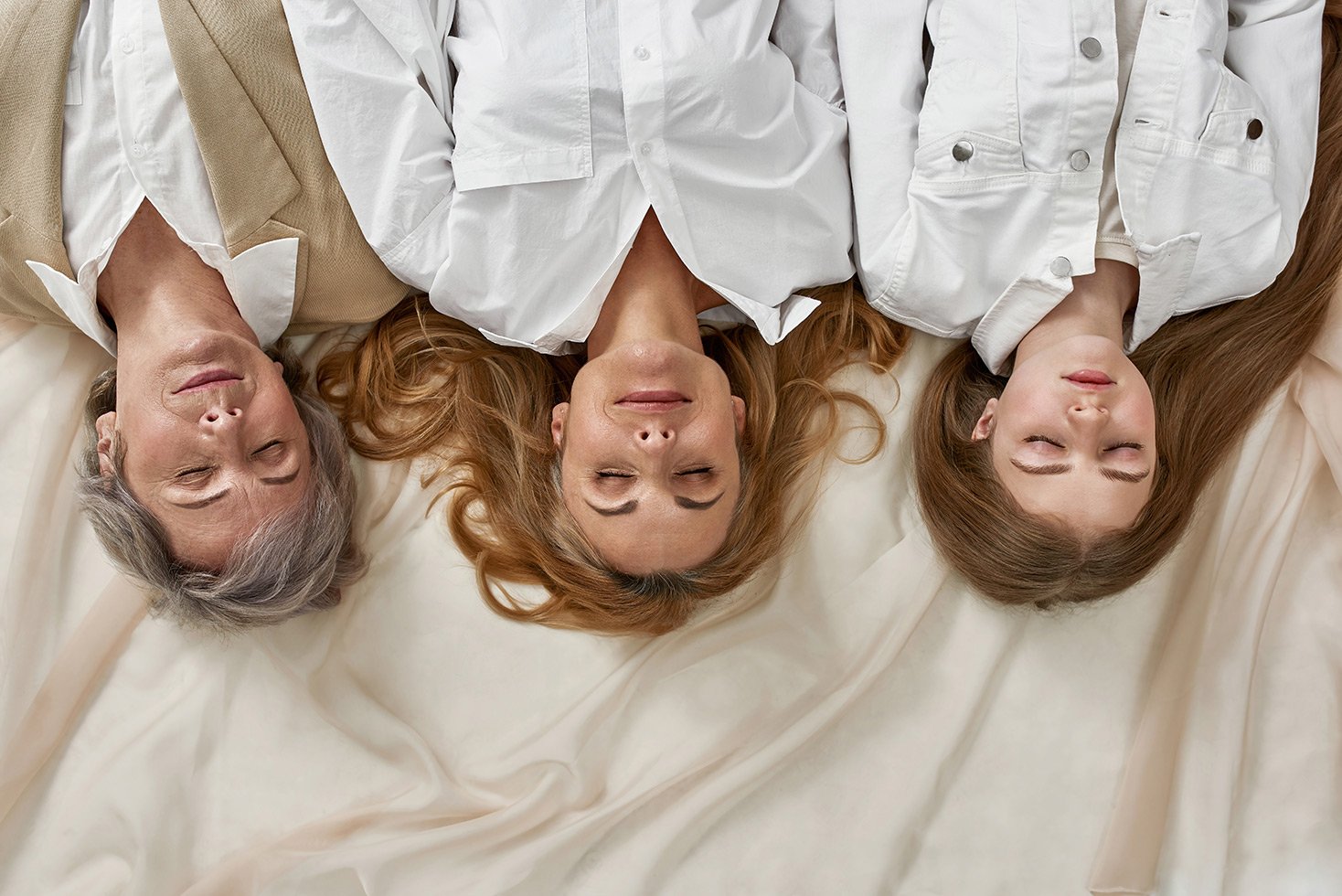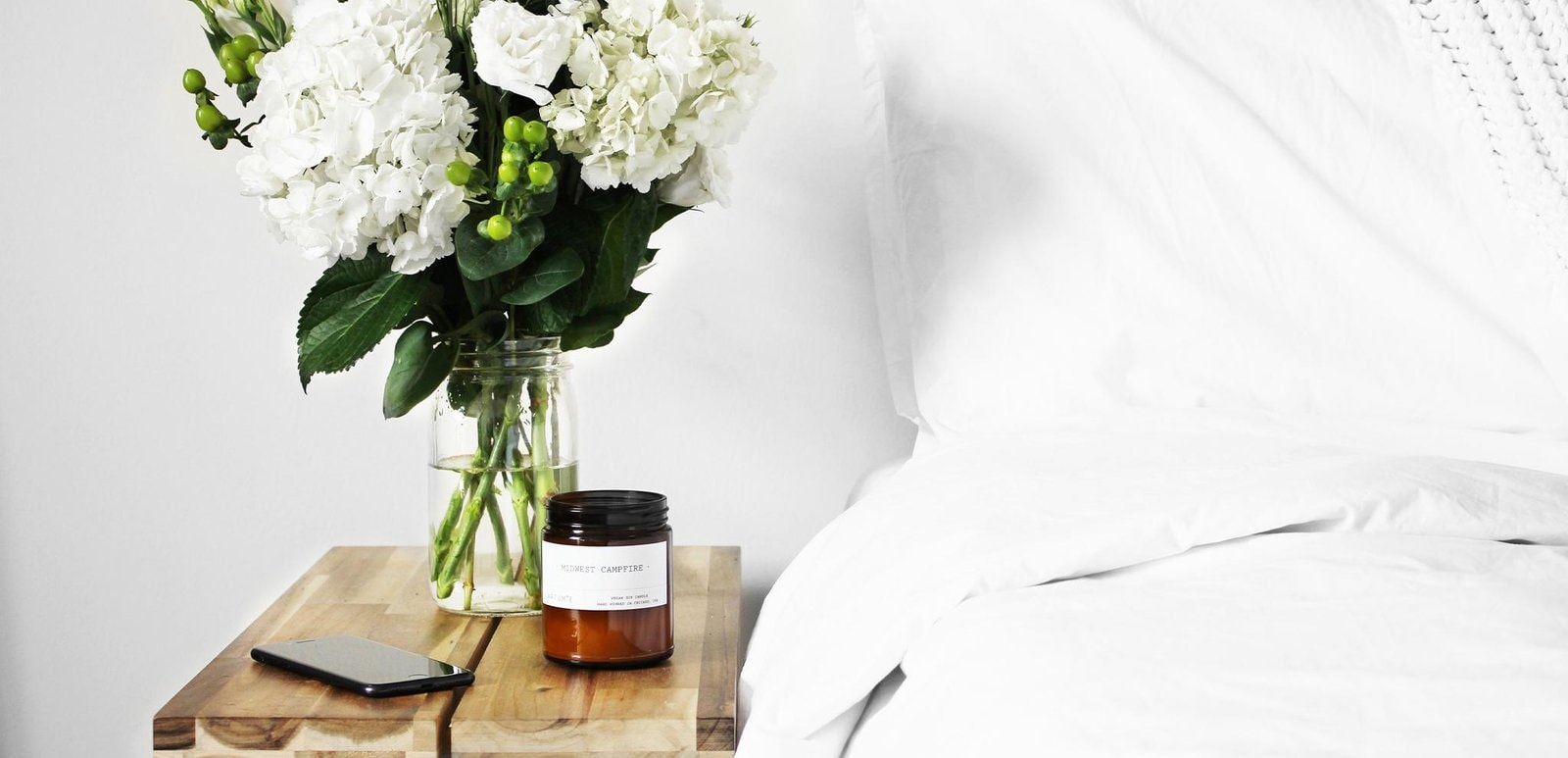Sleep is crucial to infants’ physical, mental, emotional and cognitive development; for one thing, it allows neuron connections to be created. As we get older, we need less sleep and may also find it more difficult to sleep. Let’s take a look at these changes.
1. SLEEP CYCLES AND PHASES
Every night, our sleep is structured around a series of cycles. Adults experience between four to six sleep cycles, each lasting 90-110 minutes. There are a number of phases in each cycle:
- Wakefulness – this phase lasts between 5 and 10 minutes
- Stage 1 Very light sleep, which lasts 10 minutes
- Stage 2 Light sleep, lasting 20 minutes
- Stage 3 Deeper sleep, lasting 30 minutes
- Stage 4 Deepest non-REM sleep, lasting 40 minutes
- Stage 5 REM sleep, which lasts 10-15 minutes
2. SLEEP REQUIREMENTS DIFFER GREATLY DEPENDING ON AGE
- As the night progresses, the proportion of REM (or paradoxical) sleep increases and that of non-REM sleep decreases.
- Up to the age of around six months, newborns sleep 14-17 hours a day in four sleeps within a given 24-hour period; during their sleep, each cycle lasts around 50-60 minutes.
- Between six and twelve months, infants sleep for 13-14 hours a day in three sleeps within a given 24-hour period, with 70-minute cycles.
- Between the ages of 1 and 3, children’s total sleep time decreases to 12-13 hours and their sleep cycles get longer, lasting 90-120 minutes.
- Older children between the ages of 5 and 13 sleep 10-11 hours.
Teenagers aged 14-17 sleep for 8-10 hours and experience less deep sleep (in terms of both quality and quantity). - Adults sleep 7-9 hours a night.
- Over-65s sleep 6-8 hours a night.
3. THE MAIN CHANGES IN SLEEP AS WE AGE
What changes? Basically, how long and how well we sleep. Overall, we experience less restorative sleep due to a number of changes taking place:
- a longer period of wakefulness;
- more fragmented sleep; we wake up during the night more often and for longer;
- less deep sleep: this stage accounts for 30% of our sleep aged ten, but only 20% when we’re adults, and all but disappears by the time someone reaches the age of 80;
- less REM sleep;
- our total sleep time is shorter.
In addition, there’s often a gradual change towards morningness as we get older. Ultimately, the entire structure of our sleep patterns changes. “From the age of 40 onwards, sleep efficiency decreases by 3% every ten years and continues to do so until we reach an advanced age.” Sleep becomes lighter and less restorative. We become increasingly sensitive to noise and discomfort, often made worse by joint or muscle pain, making it more likely that we’ll wake up during the night.

4. WHAT’S CHANGED?
Francesca Siclari, associate physician at Vaud University Hospital’s Sleep Investigation and Research Centre, has demonstrated a close link between brain maturity and sleep. Children’s brains are extraordinarily plastic, allowing them to learn and adapt quickly. “Over time, our brains become increasingly specialised”, explaining our reduced sleep needs.
This decrease in brain plasticity and the corresponding ability of our bodies to adapt ends up putting our biological clocks out of synch. This in turn results in us going to bed earlier and rising earlier.
Another mechanism that changes as we age is the homeostatic regulation that manages our need for sleep throughout the day, depending on how long we’ve been awake. The longer we’ve been awake, the greater the need for sleep. However, as we age, the need for sleep tends to decrease, and so we sleep less deeply.
Sleep disorders and medication
Other factors can also interfere with sleep quality; these include taking medication and sleep disorders such as sleep apnea (in which the airway closes with the result that the sleeper wakes up).
Napping
We all need a set amount of sleep, so having an afternoon nap inevitably reduces how much sleep we need at night by the same amount.
5. OLDER PEOPLE’S PERCEPTION OF HOW WELL THEY SLEEP MAY NOT BE ACCURATE
The HypnoLaus survey revealed a gap between how individuals perceived their sleep and the physical evidence. Individuals were interviewed in the morning about how well they had slept and how likely they were to fall asleep during the day. Over-60s felt they had slept well, and over-70s ranked their sleep even better. There was an unexplained decrease in the tendency to fall asleep during the day, especially among women.
TAKING GOOD CARE OF OUR SLEEP THROUGHOUT LIFE
Changes in sleep form a natural part of the ageing process. Being aware of this provides reassurance, helps us understand these changes and allows us to take preventive measures.
There is still much we don’t know about sleep, but what is certain is that this incredibly complex phenomenon plays a vital role in our physical and mental health, so we’d best take care of it! How? Stimulate your biological clock through regular exposure to daylight – perhaps making the most of light therapy, too. Regular exercise plays an important role as well. And if you don’t want to disrupt your night-time sleep, don’t nap for longer than twenty minutes or so.
Last but by no means least, make sure your bed is suitable for your body shape and needs: proper comfort, temperature regulation and back support all help extend periods of deep sleep and ensure we don’t wake up as often in the middle of the night.
Sources
- Dresse Véronique Negrel, décembre 2023
- Raphaël, S., et al. Sommeil et valeurs normales : utilité pour le praticien, Rev Med Suisse, Vol. -9, no. 040, 2005, pp. 2607–2616.
- Heinzer, R., et al. HypnoLaus : le sommeil sous la loupe, Rev Med Suisse, Vol. -3, no. 315, 2011, pp. 2137–2141.
- D. Davenne, Activité physique et sommeil chez les seniors, Médecine du Sommeil, Volume 12, Issue 4, 2015, Pages 181-189, ISSN 1769-4493.


